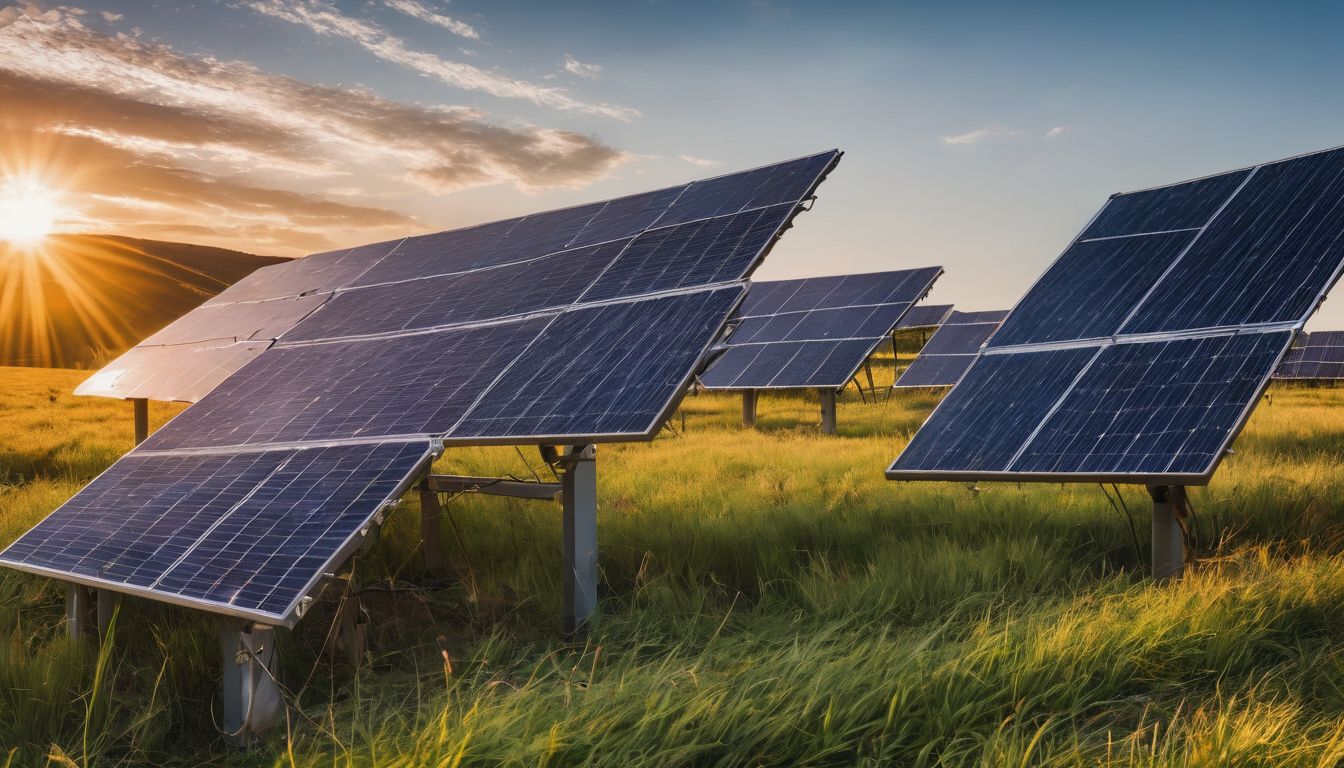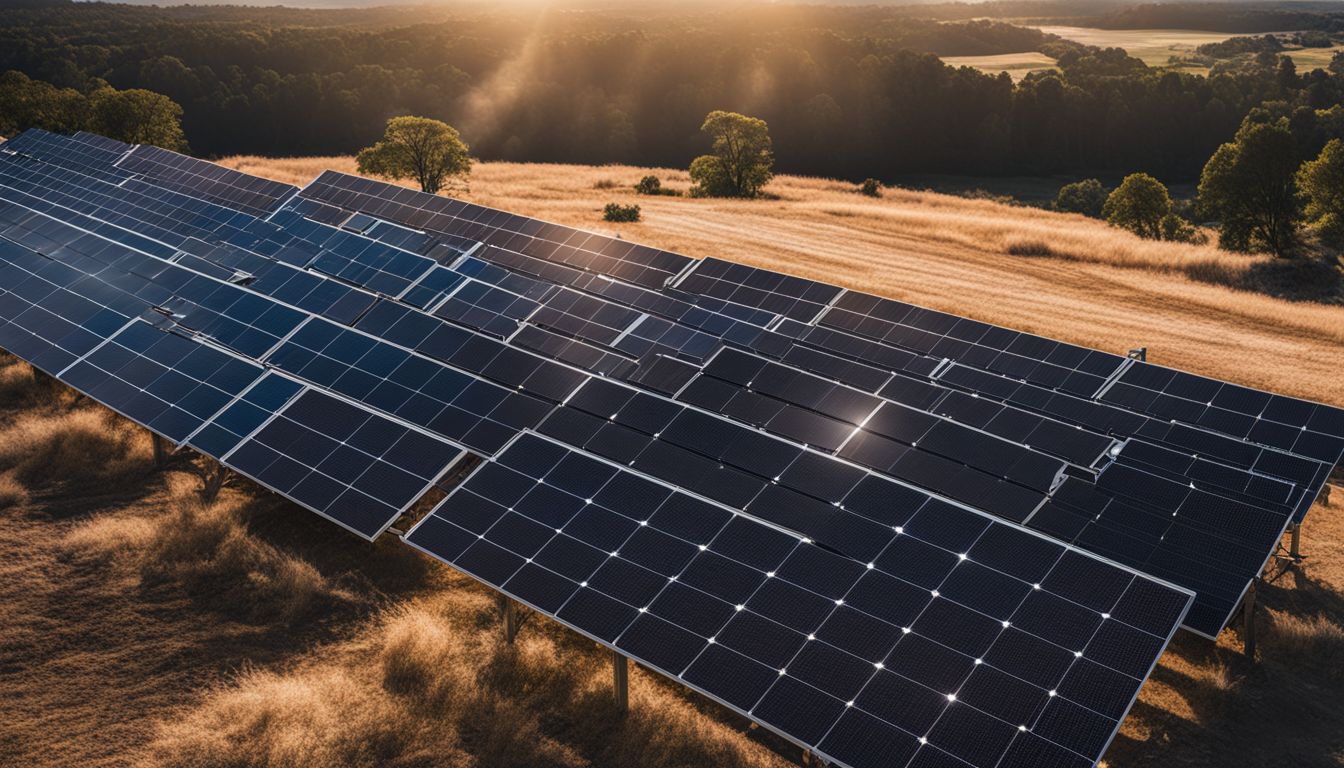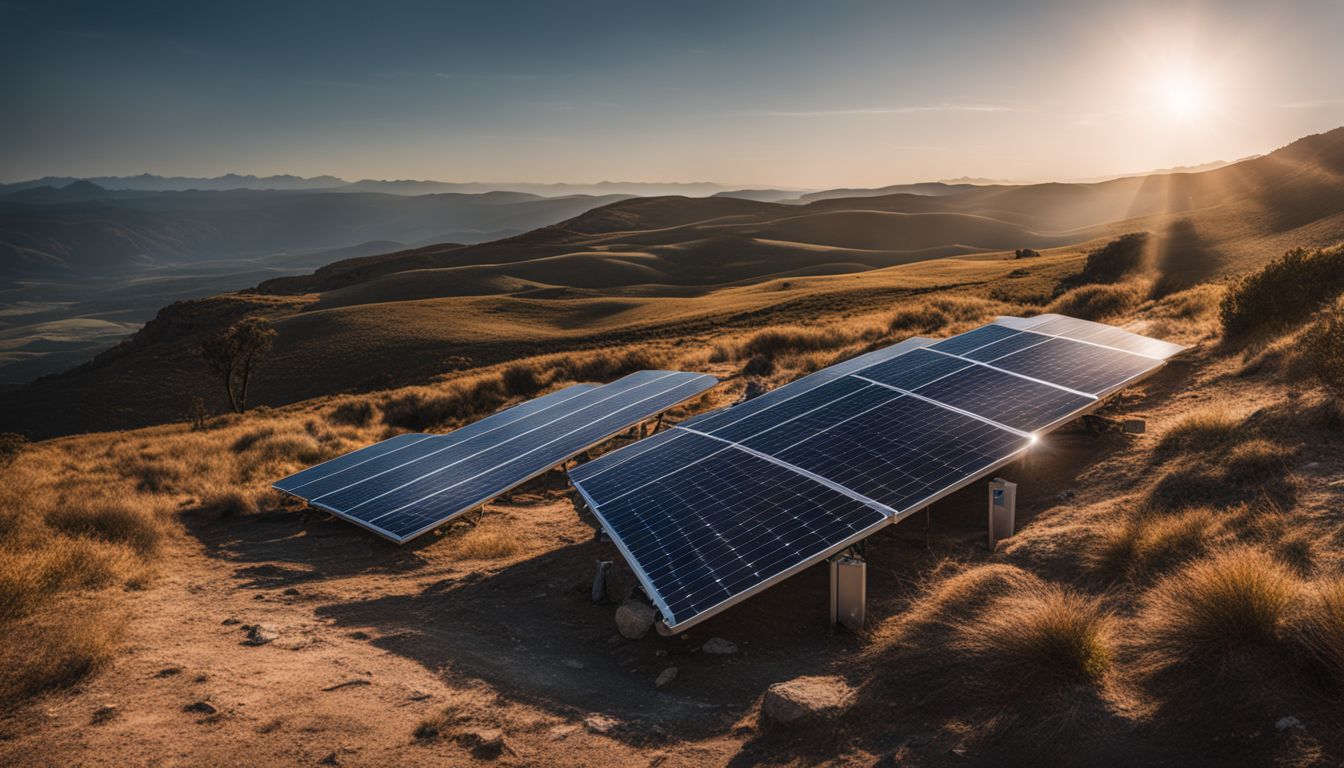Can solar work without a battery?

Have you ever wondered if it's possible to harness solar power during the day without storing it for later? It's a query many eco-conscious folks ponder. This article will delve into how solar panels can function just fine without a battery in place, giving you clean energy straight from the sun's rays.
We're going to explore alternative methods that enable you to use solar energy directly, ensuring your devices and home are powered sustainably. Keep reading; it gets interesting!
Key Takeaways
- Solar panels can make electricity without batteries by using the energy right away or sending it back to the power grid.
- Grid-tied systems can earn you credits for extra power sent back through net metering, but they don't work during power cuts.
- Off-grid setups need batteries to keep the voltage stable and store solar energy for times when there's no sun.
- Using a solar panel directly without a battery saves money and space but means you must rely on sunny weather and grid availability.
- Excess solar power without a battery setup can be managed with special devices like DC-to-DC converters or by feeding extra energy into the grid.
Understanding Solar Panels Without Batteries

Solar panels can turn sunlight into electricity even if they don't have batteries. This kind of setup means the energy made is used right away, or it goes back to the power grid. Think of solar energy like water from a tap; when you turn it on without a jug to catch the water, you use what you need directly, and the rest just goes down the drain.
If your home is hooked up to the power grid and uses a grid-tied system, any extra electric juice your solar panels create flows back into the network. You might even get paid for or credited for this through something called net metering.
On sunny days when your system makes lots of power, that extra gets shared out! If there's no sun, like at night or on cloudy days, you pull energy from the grid, so there are no dark times.
https://www.youtube.com/watch?v=gud5jHHa3Fg
How to Use a Solar Panel Directly Without a Battery?

To use a solar panel directly without a battery, you can use a DC-to-DC converter or opt for a grid-tied or hybrid inverter. These options allow you to harness the power generated by the solar panel and use it directly without the need for energy storage in batteries.
https://www.youtube.com/watch?v=8NnQJGl2F48
Using DC-to-DC Converter
A DC-to-DC converter can help you use solar power right away. It changes the DC electricity from your solar panels to a different voltage. This is perfect if you need a certain voltage for things like LED lights or phone chargers. You must be careful, though.
A converter is not good for charging batteries or as the main thing getting power from solar panels. There's a danger that it could cause a fire if not used correctly.
For small tasks, converters work well with 12VDC systems since they match what most panels put out as direct current (DC). Just make sure to connect your panel straight to the converter.
This lets you turn sunlight into usable power without storing it in batteries first.
Grid-Tied or Hybrid Inverter
To use solar panels without a battery, you need a grid-tied or hybrid inverter. These devices are smart because they can turn the DC power from your solar panels into AC power that your house can use right away.
If you have extra energy, the system sends it to the electricity grid. You might even get paid for this extra power.
A hybrid inverter does more than just change DC to AC. It lets you store some of the power for when there's no sun or if there's a blackout. This type is great because it gives you options: use the solar power now, save it for later, or share it with others and maybe make some money too!
The Necessity of Batteries in Off-Grid PV Systems
In off-grid PV systems, batteries are essential for voltage and frequency stability, as well as energy storage. Without batteries, the system would be unable to maintain a consistent power supply or store excess generated energy for later use.
https://www.youtube.com/watch?v=QS_K1XKmDGE
Voltage and Frequency Stability
Off-grid PV systems need batteries for a good reason. They keep the voltage and frequency stable. This is very important because solar panels alone can't always make sure your lights stay on or your fridge keeps running smoothly.
The sun doesn't shine all the time, and without batteries, you might not have power when it's cloudy or at night.
Batteries act like a safety net for your solar energy system. They hold on to the electricity until you're ready to use it. Think of them as a giant power bank that helps manage how much electricity goes in and out of your home.
That way, everything works just right, keeping the lights bright and machines working even when there’s no sunshine to generate new power.
Energy Storage
Energy storage plays a key role in off-grid solar systems. It holds onto the electricity made by the sun during the day. Then, you can use that stored power at night or when it's cloudy and your panels aren't making energy.
Solar batteries are smart, too! They keep an eye on how much electricity your home uses and give out stored energy just when you need it.
Having batteries is like having a savings account for electricity—you put in power when there's lots to go around, like on sunny days, and take some out when there's not enough, like after sunset.
This ensures your lights stay on and your fridge keeps running even without the sun’s help. And remember, while saving up energy is great for homes away from city power lines, batteries can be costly and have an impact on our planet too.
Determining the Number of Batteries Needed for Your Solar Panel
Figuring out how many batteries you need for your solar panel involves some thinking. You need to consider how much power you use and what kind of battery fits best.
- Check your power usage. Look at your electricity bills to find out how much energy you use every day. This will tell you how big a battery storage system you might need.
- Think about battery capacity. Batteries come with different amounts of power they can store, measured in ampere hours (Ah). A battery with more ampere hours can hold more energy.
- Use a solar battery bank sizing calculator: This online tool helps you work out the right size for your battery bank. It looks at your solar kit and how much power you use.
- Consider power consumption: List all the things in your home that use electricity. Add up their power needs to see the total amount of energy you'll need from your batteries.
- The bigger, the better. Not always. More batteries mean more stored power, but they also cost more and take up more space. Find a balance that matches your home's energy needs.
- Battery life matters: Different types have different lifetimes. Lithium-ion batteries last longer than lead-acid ones, so think about how often you want to replace them.
- Plan for cloudy days. Some days are less sunny. Make sure your battery bank is big enough to cover these off-peak times without running out of juice.
- Count on a charge controller: This device protects your batteries by making sure they charge right and don't get damaged by overcharging or discharging too much.
Pros and Cons of Using a Solar Panel Directly Without a Battery
Evaluating the advantages and drawbacks of operating solar panels without battery storage presents a nuanced perspective on solar energy utilisation. Systems that connect directly to the grid or use DC-to-DC converters bypass the need for batteries, offering both benefits and limitations. Below is a table summarising these pros and cons:
| Pros | Cons |
|---|---|
| Lower Initial Cost | Potential Instability |
| Less Space is required. | Reliance on Grid Availability |
| Reduced Maintenance | Energy Wastage |
| No Battery Replacement is needed. | No Power in Outages |
| Environmental Benefits from Fewer Resources Used | Less Independence from Energy Providers |
| Decreased Utility Bills | Missed Opportunity for Energy Autonomy |
Adopting a solar setup without a battery can certainly reduce upfront costs, as batteries represent a significant investment. Moreover, the absence of batteries translates to lower maintenance requirements and eliminates the need for eventual replacement—a cost- and resource-intensive process. Environmental advantages emerge from this arrangement; fewer batteries mean less exploitation of raw materials and less waste. Utility bills may see a marked decrease, as some energy providers will credit users for contributing surplus power to the grid.
Conversely, this configuration introduces potential instability, as solar energy production fluctuates with weather conditions. Grid-tied systems can leave consumers vulnerable during power outages, with no stored energy to draw upon. Excess energy generated can go to waste in the absence of storage options, and dependence on the grid may increase, reducing the potential for complete energy autonomy. These factors encourage a careful consideration of individual energy needs, goals, and the practicality of a battery-less solar option.
Dealing with Excess Generated Energy in Solar Panel System Without a Battery
When solar panels produce more power than needed, the excess energy can be fed back into the grid if you have a grid-tied or hybrid inverter. These inverters allow for efficient management of surplus electricity by synchronising with the utility grid.
Additionally, implementing a system like this could even lead to potential financial gains through net metering, where excess energy exported to the grid is credited towards your future electricity consumption.
For off-grid systems without batteries, using a DC to DC converter can regulate and redirect surplus energy for various applications, such as water heating or running low-power appliances during peak sunlight hours.
This approach optimises the use of generated solar power without necessitating battery storage, making it an economical and practical solution for many homeowners.
Conclusion
In conclusion, while it's feasible to use solar panels without batteries, the system may lack stability and reliability. Nevertheless, with the right technology and expertise, hybrid solar inverters can provide an alternative solution.
Yet, for off-grid applications or consistent power supply, battery storage remains essential. Understanding these dynamics is crucial in determining the most suitable setup for harnessing solar energy effectively.
To ensure you have an optimal setup, discover precisely how many batteries your solar panel system might require by visiting our detailed guide here.
FAQs
1. What is a solar inverter, and why is it important?
A solar inverter changes the DC voltage from your photovoltaic panels into AC power, which you can use at home or send to the electrical grid.
2. Can I run my solar power system without batteries?
Yes, you can! Your solar PV module generates electricity during daylight, which you can use right away even without energy storage systems like batteries.
3. How do homes off-grid use solar energy if there's no battery backup?
Off-grid homes rely on alternative sources when sunshine isn't enough. They often have a generator or another renewable source as backup power, along with their main solar setup.
4. Are there any benefits to using rechargeable batteries with my solar system?
Rechargeable batteries like lithium-ion or nickel-cadmium store excess power for later, offering more self-consumption and low self-discharge advantages for times when the sun doesn't shine.
5. What does 'grid-tied' mean for a solar electricity setup?
Grid-tied means your home's connected to the public electrical grid; excess energy made by your system goes back to these grids—you might even earn credits from your utility company!
6. Does choosing different types of inverters matter for my setup?
Absolutely! Depending on what kind of sine wave—pure or modified—best fits your devices, picking between sine wave inverters or square wave inverters ensures that everything runs smoothly and safely.











